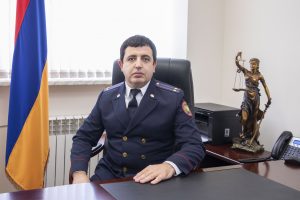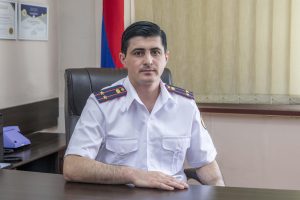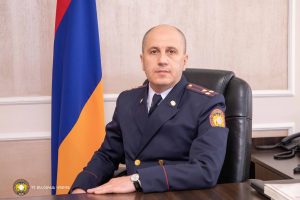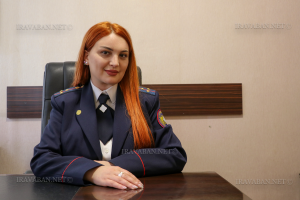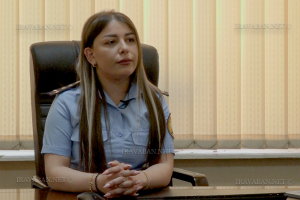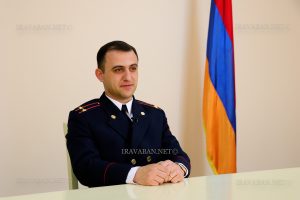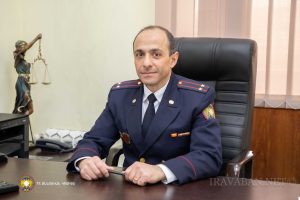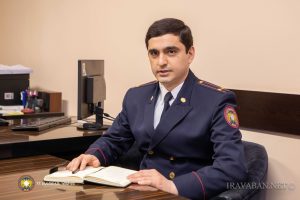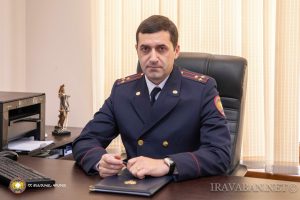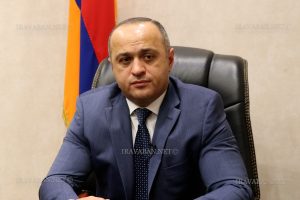As part of Iravaban.net‘s “The Investigator Presents” interview series dedicated to women’s holidays, we spoke with Inesa Petrosyan, Senior Investigator of the Special Cases Investigation Department of the Special Assignments General Directorate of the RA Investigative Committee.
-Did your family members play any role in your choice of profession?
-I studied at the Faculty of Law at Yerevan State University. I received both bachelor’s and master’s degrees. I worked at the Court of First Instance of General Jurisdiction of Yerevan as a judge’s clerk, and then as an assistant. Afterwards, I worked at one of the banks as a leading specialist in bankruptcy cases. Since 2022, I have been working at the Investigative Committee. My family members didn’t guide me, but when I chose the work of an investigator, they welcomed my decision, stood by me, and didn’t criticize me.
-You have been working in the investigative body since 2022. What difficulties and challenges exist here for a woman?
-Just like male investigators, female investigators can face numerous difficulties, and there can be quite tense situations. Solving these problems doesn’t depend on gender, but on the person’s professional knowledge and character. An investigator must be able to make quick decisions, as well as responsible decisions, and orient correctly; as a result, the problems that arise will be solved. There are quite tactful male representatives in the Investigative Committee who, if they see that we are having difficulty with something, are willing to help us and regularly offer their assistance.
-Are there specific difficulties that female investigators face compared to their male colleagues?
-At present, there are no such issues. If previously, for example, when citizens learned that a female investigator would investigate the criminal case, they were a bit distrustful, thinking that it wouldn’t have the same outcome as if the investigator were a man. Currently, in state bodies, including in power structures, there are quite high-ranking female representatives, and society has already accepted and fully comprehended all this. The main issue was people’s trust towards our gender, but currently, that issue doesn’t exist. Now, when citizens know that their investigator is a woman, they don’t have concerns; they even know that a woman performs her work with more dedication.
-Has it happened that you received threats from an interrogated person or persons connected with them?
-During my work, I have never received threats from anyone. First of all, I form positive relationships with each participant in the proceedings. We try not to enter into conflicts with the parties, and we also treat them with respect. Consequently, we receive the same. The problem has never reached the point where I receive threats directed at me.
-Do disappointments occur frequently in your work?
-I have never been disappointed with my work. When there has been a difficult, tense situation, after honorably overcoming that situation, when we take one deep breath, everything is already behind us, and we don’t have time to be disappointed by anything, especially by work; such situations haven’t occurred in my life and practice.
-Our society, typically, characterizes different jobs, saying this one is a man’s job, that one is a woman’s job. In the work of an investigator, has there been a case when you thought that, nevertheless, the work of an investigator is for a man?
-Years ago, there was such an opinion in society that if a woman works in a power structure, consequently her work cannot be of quality. However, times are changing; there are quite a few women in state bodies, and it has already become normal in society. Moreover, perhaps they want more women to investigate their cases, as they are more patient and can plan correctly. If each person has a strong will and correctly plans their work, regardless of gender, they will achieve their goals.
-Can you share interesting psychological techniques that you use during interrogation?
-The psychological technique that I constantly apply is that when I need to interrogate one of the participants in the proceedings, let’s say, a witness or a defendant, I create the impression that I know everything about the circumstances of the case, and consequently, they are not inclined to lie.
-Your younger sister has also chosen the work of an investigator. Did you play any role in her choice?
-In 2022, when I started working at the Investigative Committee, I spoke quite positively about my work. My sister was working elsewhere at that time, and I advised her to apply and continue her path here.
Details in the video.
Hasmik Sargsyan



